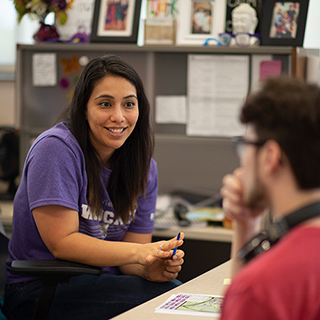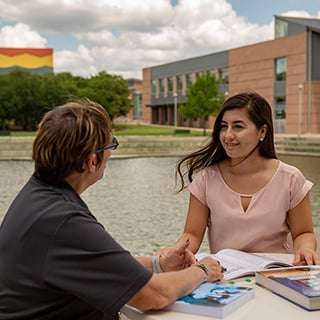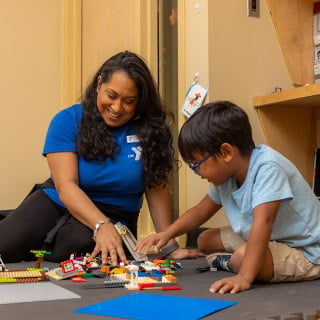
Philosophy
Teach courses in philosophy, religion, and theology. Includes both teachers primarily engaged in teaching and those who do a combination of teaching and research.
|
Jobs available locally 10,258 |
Demand Locally +1 % |
Annual Wage Range $50,998 – $214,067 |
Program Level:
Pre-Majors/Transfer
Department:
Humanities
Institute:
Creative & Communication Arts
College:
NVC
Philosophy Courses Links of Interest Faculty & Staff Apply Now
About the Program
“The aim of philosophy, abstractly formulated, is to understand how things in the broadest possible sense of the term hang together in the broadest possible sense of the term” - Wilfrid Sellars The questions pursued by Philosophers are incredibly diverse, but many of them around three important and fundamental questions: "What exists?", "How can I know about it?", and "What should I do?" These are big questions, and Philosophers have been trying to tackle them for a very long time in a lot of different ways.
What will I learn?Our Program offers four courses which introduce students to different areas of Philosophy, and these areas are as different as the different fields in the Sciences. In our general introductory course (1301) students survey various historical and contemporary philosophical problems concerned with what kinds of things exist, what can be known about it, and how we might situate ourselves within it. In Ethics (2306) students are introduced to the concepts which are fundamental to understanding moral value, reasoning, and action. What is "good?" What kinds of acts are "right?" What sorts of situations or outcomes are "just?" In Logic (2303) students learn about the structure of formal arguments and proofs. How do arguments need to be structured to prove a particular conclusion? What are the common ways in which arguments can go wrong? In World Religions (1304) students learn about the diverse beliefs and practices of contemporary religions. Is there a "divine" or a "sacred?" How are human beings related to it? |
What can I do with this course of study?Philosophy and the skills of philosophical thinking are relevant and beneficial to many diverse careers, while philosophy students themselves go on to excel in whatever fields they enter upon completion of their course of study. Fields like Medicine (especially Bioethics) and the Law have many clear overlaps with Philosophy, and students who focus their studies in Logic will find many helpful applications of their skills in Computer Science, especially programming and the new and growing field of "Ontology."Students who graduate with degrees in Philosophy tend to score better than almost anyone on the various Graduate admissions tests and tend to earn better than other Humanities degree holders by Mid-career. |
What is special about this program?
In Philosophy courses, students have an opportunity to think critically about concepts which are rarely investigated directly in other fields of inquiry. In general, philosophical inquiry involves uncovering and reflecting on many of the everyday assumptions behind what we believe and value. This provides a context in which students learn to discover, develop, and explain the reasons they have for what they do, say, and think. Often this demands the students provide a more concrete and explicit articulation of those reasons and ideas that will be required in other more specific fields of study or the normal course of their everyday lives. These experiences give students of philosophy an opportunity to think rigorously and carefully about a set of problems and questions that are often addressed elsewhere, and yet are of vital importance. In order to make this thinking clear, students are asked to express themselves through both oral and written argument. Ultimately, this is what all courses in philosophy have in common - rigorous thinking, speaking, reading, and writing – a critical set of skills necessary for success in today’s complex world.
Philosophy Resources
Click on the general topic shown below to go to the list of related resources.
Links |
Africa
China
Japan
Nihongo (Portal for Learning Japanese)
The Ancient World
Buddhism
Christianity
Hinduism
Islam
Judaism
News Sources
General Web links
Available Courses:
|
PHIL 1301 - Introduction to Philosophy PHIL 2303 - Introduction to Logic |
PHIL 1304 - Introduction to World Religion PHIL 2306 - Introduction to Ethics |
Faculty and Staff
|
Contact UsHumanities Dept. Email: |
George Gittinger Location: Phone: |
Paul Martinez Location: Phone: |
Karina Ramirez Location: Phone: |




